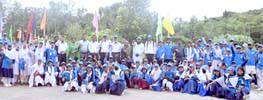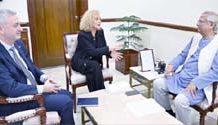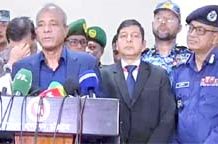C T Online Desk: The United Nations Industrial Development Organization (UNIDO) and the Department of Environment (DoE) are jointly implementing a project titled “Integrated Approach Towards Sustainable Plastic Use and Marine Litter Prevention in Bangladesh,” funded by the Norwegian government.
The project aims to formulate policy, raise consumer awareness, implement preventive techniques in plastics industries, and develop plastics recycling industries, according to a press release issued on Sunday.
To celebrate World Ocean Day, eco-clubs in Cox’s Bazar organized a debate and seminar at the Bangladesh Oceanographic Research Institute (BORI).
To raise awareness and promote community action, Cox’s Bazar was chosen due to its status as a major tourist destination in Bangladesh and its vulnerability to marine litter.
While cleanup events are common for consumer awareness in Bangladesh, they often lack sustainability.
To address this, the UNIDO project team conducted a field mission in February 2024 to develop a sustainable model for community awareness and action.
Since March, UNIDO has launched an awareness campaign in Cox’s Bazar, targeting schools and the fishing community. To date, several training workshops and awareness seminars have been held. During these seminars, eco-clubs shared their activities through poster presentations and displayed various leaflets designed by their members, stemming from the awareness raised through the project’s training sessions.
The seminars had two main objectives: to ensure no fishers or boats discard plastic into the sea and to encourage fishers to collect any plastic waste they encounter while fishing. Designated points for storing collected plastic have been provided, with a connection to the recycling sector to handle the collected waste.
The Bangladesh Oceanographic Research Institute (BORI) actively participated in the seminars, providing logistical support and guidance. Eco-club members watched 3D ocean-themed movies and participated in an ocean Olympiad.
Representatives from UNIDO, the DoE, the Department of Fisheries, the Bangladesh Fishing Development Corporation, fisher associations, local government, civil society, and village community leaders attended these events.













